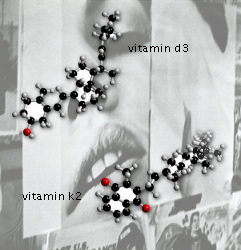 This brief article provides a summary of practical strategies for achieving and maintaining good tooth-health. Since this blog is not health focused per say the article heavily references other articles and blogs but aims towards including all basic information needed for good dental health inline. It is important to note that teeth are in a constant cycle of re-mineralization which is why that, contrary to popular belief, cavities can re-seal, and more importantly do not need to occur in the first place.
This brief article provides a summary of practical strategies for achieving and maintaining good tooth-health. Since this blog is not health focused per say the article heavily references other articles and blogs but aims towards including all basic information needed for good dental health inline. It is important to note that teeth are in a constant cycle of re-mineralization which is why that, contrary to popular belief, cavities can re-seal, and more importantly do not need to occur in the first place.
Now lets get down with the data. The linked material often contains tool-tips with further information so do allow the mouse to hover before it clicks. A number of the links associated to Vitamin K2 MK-4 points towards material referenced from Winston Price who worked with a formula knows as Activator X, it has been confirmed to actually be Vitamin K2 MK-4 in 2007 by Chris Masterjohn. While most studies have been done on the MK-4 variant I have personally found a vitamin K complex to be of more benefit against dental plaque (I’m not the only one), see recommended products at end of article for specifics.
Diet & Supplementation
To avoid
- No sugar (causes bacteria, lactobacillus and streptococcus mutans mainly, to digest sugars and break them down into acid that destroys enamel and allows cavities to form)
- No wheat (phytic acid causes extra excretion of phosphorus which in essence means loss of teeth mineralization material. Also gluten sensitivity causes mal-absorption of minerals in many people)
- Preferably no nuts (again phytic acid)
- No soft drinks (same issues as with sugar, only worse due to phosphoric acid which causes even more acidity and is linked to lower bone density)
To include
- Vitamin D (even without major diet change Vit. D is able to shift balance towards more cavities being healed than being formed, it promotes absorption of calcium and phosphorus in the gut which is essential because tooth enamel is primarily made out of hydroxylapatite; a crystalline calcium phosphate)
- Vitamin K1, K2 MK-4 & MK-7 (helps all bone and teeth health via improved calcium bonding and balances and activates the effects of Vitamin D and A, it also seems to eradicate bacteria and changes saliva from phosphorus-accepting to phosphorus-donating, meaning that your own spit starts maintaining teeth enamel instead of gradually breaking it down).
- Omega 3 (1.5 times less occurrence of periodontal disease)
- Rosemary (stabilizes Omega 3 oils in the body to avoid oils becoming rancid & provides anti-viral, anti-bacterial, anti-inflammatory, anti-oxidant, and interestingly, anti-glycation effects, see recommendations below on how to prepare soundly and cheaply)
- Xylitol (intake routinely linked to lower incidence of cavities through anti-bacterial and alkalizing effects)
As a general guide adequate amounts of magnesium, calcium and vitamin A and vitamin C (non-acid source preferred, such as sodium ascorbate) needs to be present in the diet for vitamin D and K to work their magic. Supplement these conservatively if in doubt.
edit: post still missing dose recommendations, will be added shortly